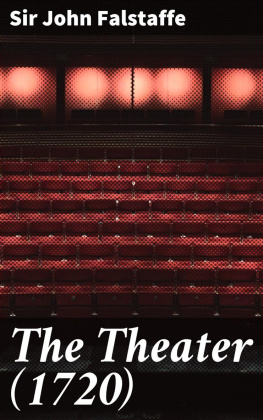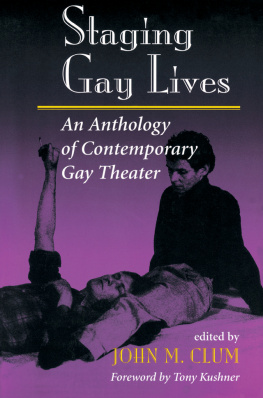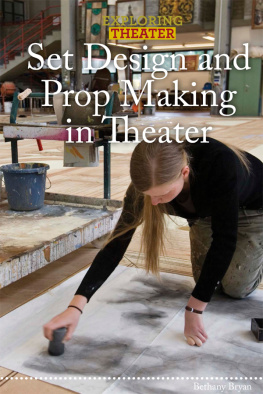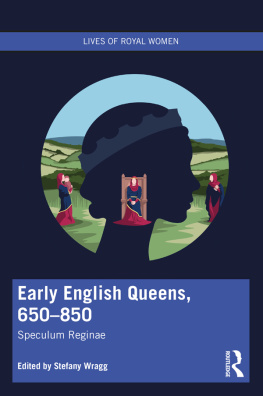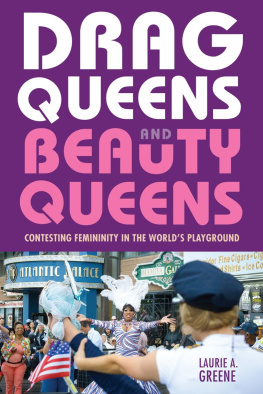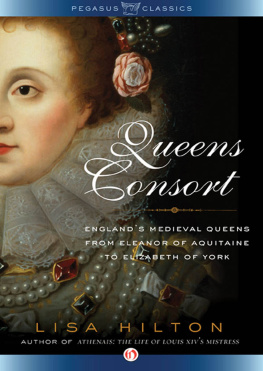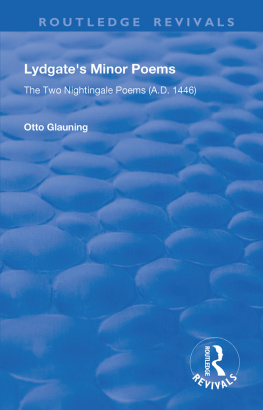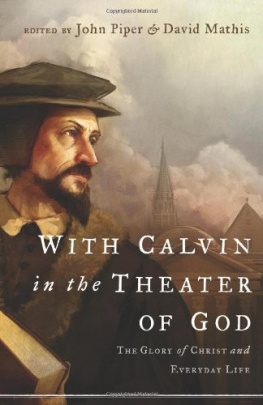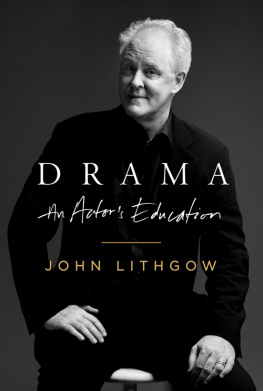The Queens Dumbshows
THE MIDDLE AGES SERIES
Ruth Mazo Karras, Series Editor
Edward Peters, Founding Editor
A complete list of books in the series
is available from the publisher.
The
Queens Dumbshows
John Lydgate and the Making of Early Theater
Claire Sponsler

Copyright 2014 University of Pennsylvania Press
All rights reserved. Except for brief quotations used for
purposes of review or scholarly citation, none of this book
may be reproduced in any form by any means without
written permission from the publisher.
Published by
University of Pennsylvania Press
Philadelphia, Pennsylvania 19104-4112
www.upenn.edu/pennpress
Printed in the United States of America on acid-free paper
10 9 8 7 6 5 4 3 2 1
Library of Congress Cataloging-in-Publication Data
Sponsler, Claire.
The queens dumbshows : John Lydgate and the making
of early theater / Claire Sponsler. 1st ed.
p. cm. (Middle Ages series)
Includes bibliographical references and index.
ISBN 978-0-8122-4595-0 (hardcover : alk. paper)
1. Lydgate, John, 1370?1451?Criticism and interpretation. 2. TheaterEnglandHistoryMedieval, 5001500. 3. English dramaTo 1500History and criticism. 4. English literatureMiddle English, 11001500History and criticism. I. Title. II. Series: Middle Ages series. PR2037.S73 2014
821.2dc23
2013038739
CONTENTS

Chapter 2. Vernacular Cosmopolitanism: London
Mummings and Disguisings
ABBREVIATIONS

CCMET | Cambridge Companion to Medieval English Theatre, ed. Beadle |
CHMEL | The Cambridge History of Medieval English Literature, ed. Wallace |
DTR | Dramatic Texts and Records of Britain, ed. Lancashire |
EETS | Early English Text Society |
e.s. | extra series |
JMEMS | Journal of Medieval and Early Modern Studies |
LALME | A Linguistic Atlas of Late Mediaeval England, ed. McIntosh et al. |
MED | Middle English Dictionary |
MPJL | The Minor Poems of John Lydgate, ed. MacCracken |
OED | Oxford English Dictionary |
o.s. | original series |
PMLA | Publications of the Modern Language Association |
PPC | Proceedings and Ordinances of the Privy Council of England, ed. Nicholas |
PROME | The Parliament Rolls of Medieval England |
REED | Records of Early English Drama |
RP | Rotuli Parliamentorum |
s.s. | supplementary series |
INTRODUCTION

Theater History as a Challenge
to Literary History
The standard history of medieval English literature is one in which a queens dumbshows would not readily find a place. That history enshrines a written (in verse) canon fashioned in the fifteenth century around the works of a group of (male) London writers who followed in Chaucers footsteps. According to this account, the formation of that canon began with the inner circle of Chaucers fellow civil servants and writers and was given a boost by the promotional efforts of Englands Lancastrian rulers and London elites, who were interested (for not entirely identical reasons) in the establishment of English as a prestige language in the years after Chaucers death. The works that resulted were disseminated through William Caxtons press and put to use by the Tudors for their program of nationalist propaganda, going on to shape the contours of early English literary history in the sixteenth and seventeenth centuries.
In calling this book The Queens Dumbshows, I aim to underscore the fact that durable though this history has proven, it tells only part of the story of literature and culture in the years before and around the invention of the printing press. As recent work has begun to show and as evidence from the period demonstrates, this literary history rests on a blinkered view of the generic, regional, and thematic scope of imaginative writings in Middle English. From within a modern classification scheme that defines the literary as written poetic texts, many Middle English texts look distinctly nonliterary: that is, they took the form of collaboratively produced performances, visual representations, or mixed-media productions, rather than single-authored poems. Additionally, because their audiences and, in some instances, authors
Chief among the excluded texts are the dramatic performances that were part of the seasonal calendar of religious and governmental ritual, performances that included unscripted entertainments such as mimed and improvised dumbshows and mummings that were created and performed on the periphery of London-centric poetic literary production. Often anonymous, nearly always ephemeral, and typically collaborative, those performancesand especially play-texts related to themhave survived only haphazardly and in numbers that belie their popularity. We know of those performances chiefly through brief mentions in various kinds of public records, including chronicles, legislation against disturbances associated with them, and expenditure accounts by guilds and households. Those records offer tantalizing glimpses of a wider world of public and private ceremonies, plays, and dramatic enactments beyond that revealed in the handful of surviving scripts (such as those of the biblical cycle plays) or the few examples of morality and miracle plays (including the Croxton Play of the Sacrament, the Digby Mary Magdalene, and Mankind).
Acquiring access to that wider world while grappling with the theoretical and practical complexities posed by the spotty archive of medieval performances has motivated some of the best recent work in early theater studies. As a result of such archival projects as the Records of Early English Drama (REED), which was begun in the 1970s at the University of Toronto, scholars of early drama now have at their fingertips detailed information about performances that never took, or did not survive in, the form of a play-script. With help from REED and similar archival work in European countries, we can now balance the paucity of surviving scripts of plays with the abundance of records documenting public and private, indoor and outdoor, performances on a variety of occasions and for a range of audiences throughout the year. Even if most of those records (with the exception of records from England) If we were going strictly by texts of plays, we would never know about the existence of these and any number of other scriptless early performances.
Next page

